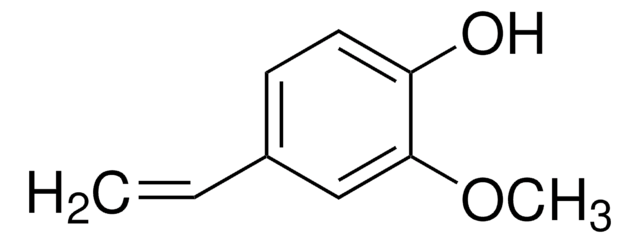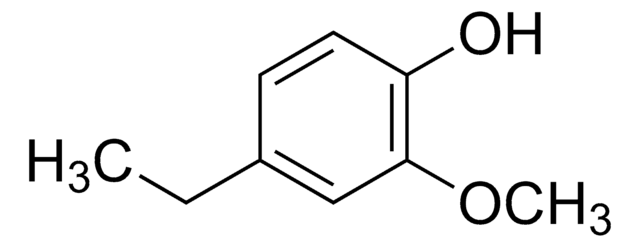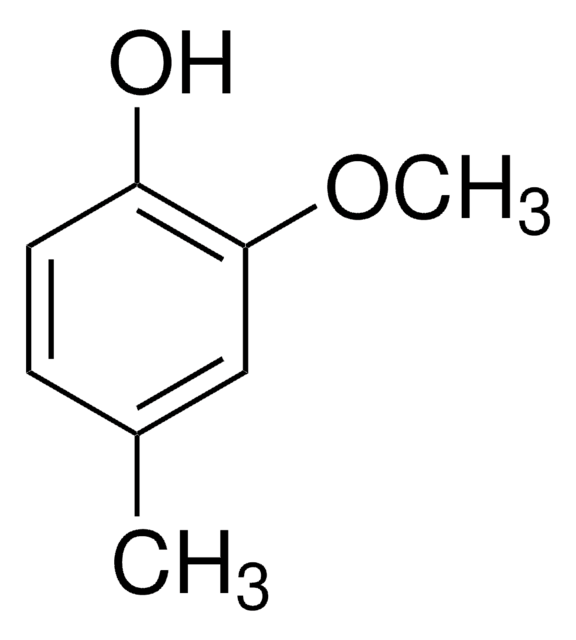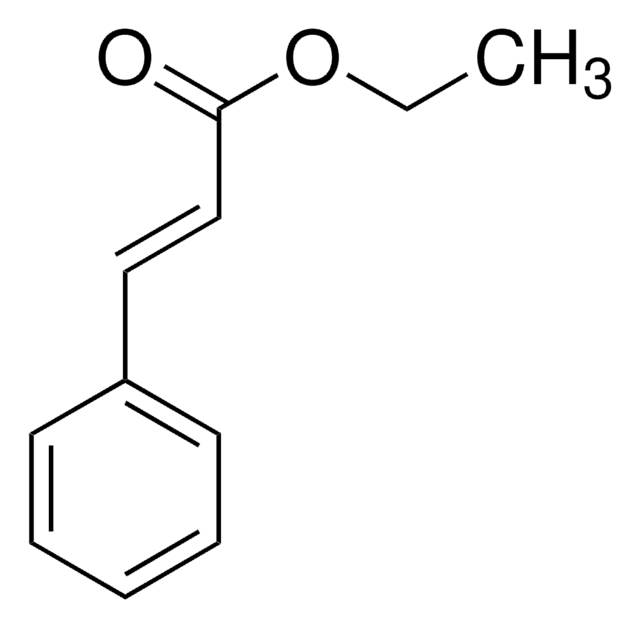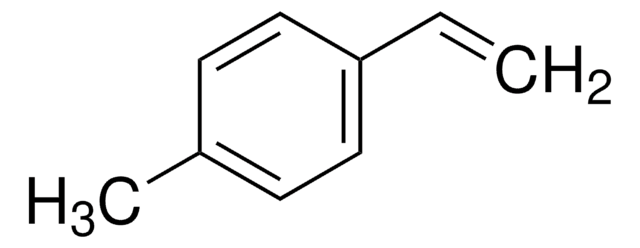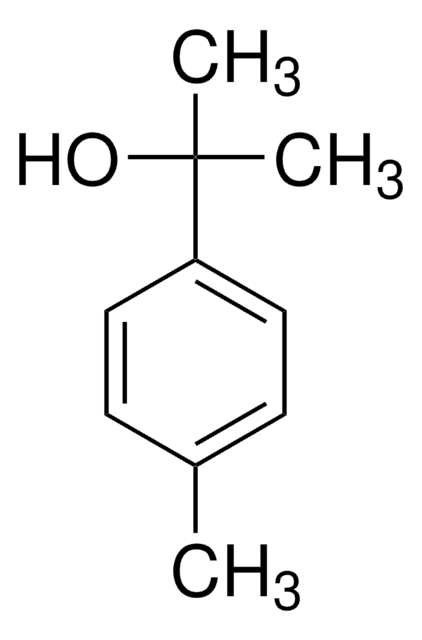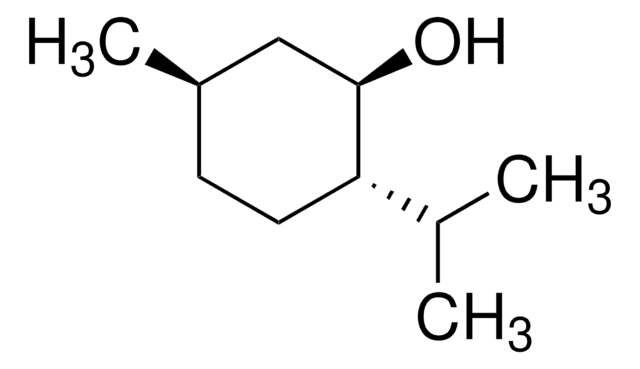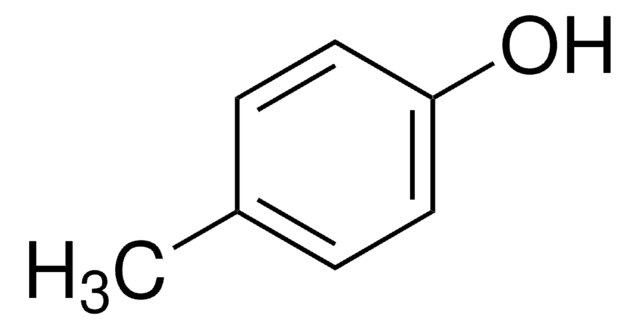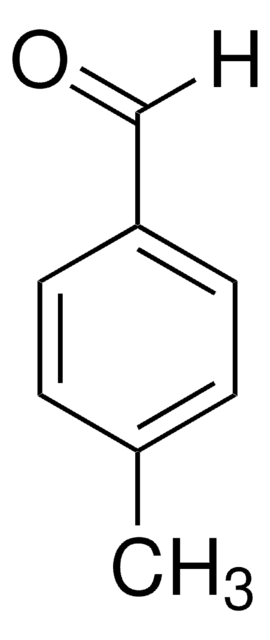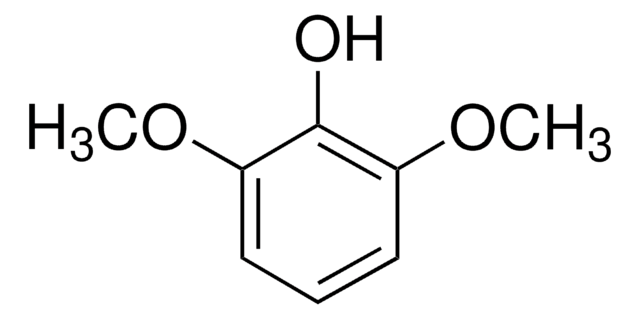W267112
2-Methoxy-4-methylphenol
natural, 97%, FG
Synonym(s):
2-Hydroxy-5-methylanisole, 2-Methoxy-p-cresol, 4-Hydroxy-3-methoxytoluene, 4-Methylguaiacol, Creosol
About This Item
Recommended Products
grade
FG
Halal
Kosher
natural
Quality Level
reg. compliance
EU Regulation 1334/2008 & 178/2002
FDA 21 CFR 117
assay
97%
refractive index
n20/D 1.537 (lit.)
bp
221-222 °C (lit.)
mp
5 °C (lit.)
density
1.092 g/mL at 25 °C (lit.)
application(s)
flavors and fragrances
documentation
see Safety & Documentation for available documents
food allergen
no known allergens
organoleptic
clove; leathery; smoky; spicy; smoky; sweet; vanilla
SMILES string
COc1cc(C)ccc1O
InChI
1S/C8H10O2/c1-6-3-4-7(9)8(5-6)10-2/h3-5,9H,1-2H3
InChI key
PETRWTHZSKVLRE-UHFFFAOYSA-N
Looking for similar products? Visit Product Comparison Guide
Related Categories
General description
Biochem/physiol Actions
Other Notes
signalword
Warning
hcodes
Hazard Classifications
Acute Tox. 4 Oral - Eye Irrit. 2 - Skin Irrit. 2
Storage Class
10 - Combustible liquids
wgk_germany
WGK 3
flash_point_f
210.2 °F - closed cup
flash_point_c
99 °C - closed cup
ppe
Eyeshields, Faceshields, Gloves, type ABEK (EN14387) respirator filter
Certificates of Analysis (COA)
Search for Certificates of Analysis (COA) by entering the products Lot/Batch Number. Lot and Batch Numbers can be found on a product’s label following the words ‘Lot’ or ‘Batch’.
Already Own This Product?
Find documentation for the products that you have recently purchased in the Document Library.
Customers Also Viewed
Our team of scientists has experience in all areas of research including Life Science, Material Science, Chemical Synthesis, Chromatography, Analytical and many others.
Contact Technical Service